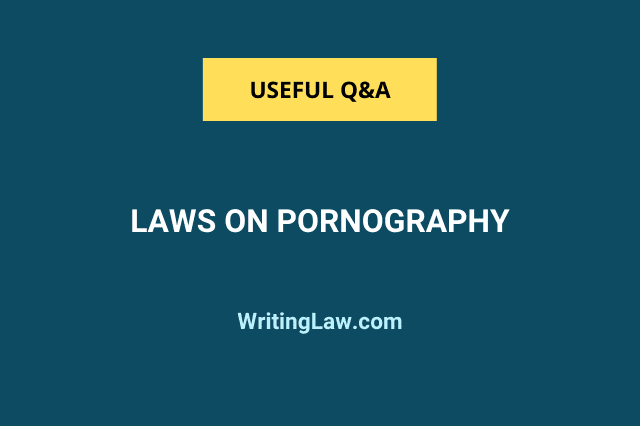
Given below are some laws in India related to pornography:
1. Selling and Distribution of Pornographic Material.
Under section 292 of the Indian Penal Code, 1860, it is punishable to sell, distribute, exhibit, circulate, import or export any obscene picture, painting, writing, book, pamphlet or drawing which is lustful or lewd or depraves or corrupt another person.
The accused can be punished with imprisonment up to 2 years and a fine of up to Rs. 2000 for the first conviction. And for subsequent conviction, imprisonment can be extended up to 5 years and a fine up to Rs. 5000.
2. Selling and Distribution of Pornographic Material to a Young Person.
If any person sells, distributes, exhibits or circulates any obscene picture, painting, writing, book, pamphlet or drawing which is lustful or lewd to a person below eighteen years of age shall be punished for first conviction with imprisonment up to three years and fine up to Rs. 2000. And for subsequent conviction imprisonment up to seven years and a fine up to Rs. 5000.
3. Obscene Acts and Songs in a Public Place.
If any person does any obscene act in a public place like, singing, reciting or uttering obscene songs or words which creates annoyance to others, it is a punishable offence. The accused shall be punished with imprisonment up to three months or a fine or both.
Nowadays, pornographic material is mainly available in electronic form, due to which section 67A and section 67B of Information Technology Act, 2000 was enforced.
Section 67A of the Act makes the publication, transmission of sexually explicit acts or conduct in the electronic form punishable. The accused shall be punished with imprisonment up to five years and a fine up to Rs. 10,00,000. This imprisonment is extended up to seven years in case of a subsequent conviction.
Section 67B of the Act makes the same offence given in the preceding section punishable if it involves sexually explicit acts depicting children.
What Are the Laws Related to Watching Pornography in India?
Watching porn in private spaces is not illegal in India as per Article 21 of the Indian Constitution, which gives the right to life and personal liberty to Indian citizens. This was also orally remarked by the Supreme Court of India in 2015.
Read Next:
1. Obscenity Laws and India – Detailed Law Article
2. What Is POCSO Act and What Rights It Provides to a Child
- What Are the Rights of Private Sector Employees in India? - 4th April 2023
- Is an Unmarried Woman Legally Allowed To Have an Abortion in India? - 27th June 2022
- What Are the Two Main Schools and Four Sub-Schools Under Hindu Law? - 27th April 2022







